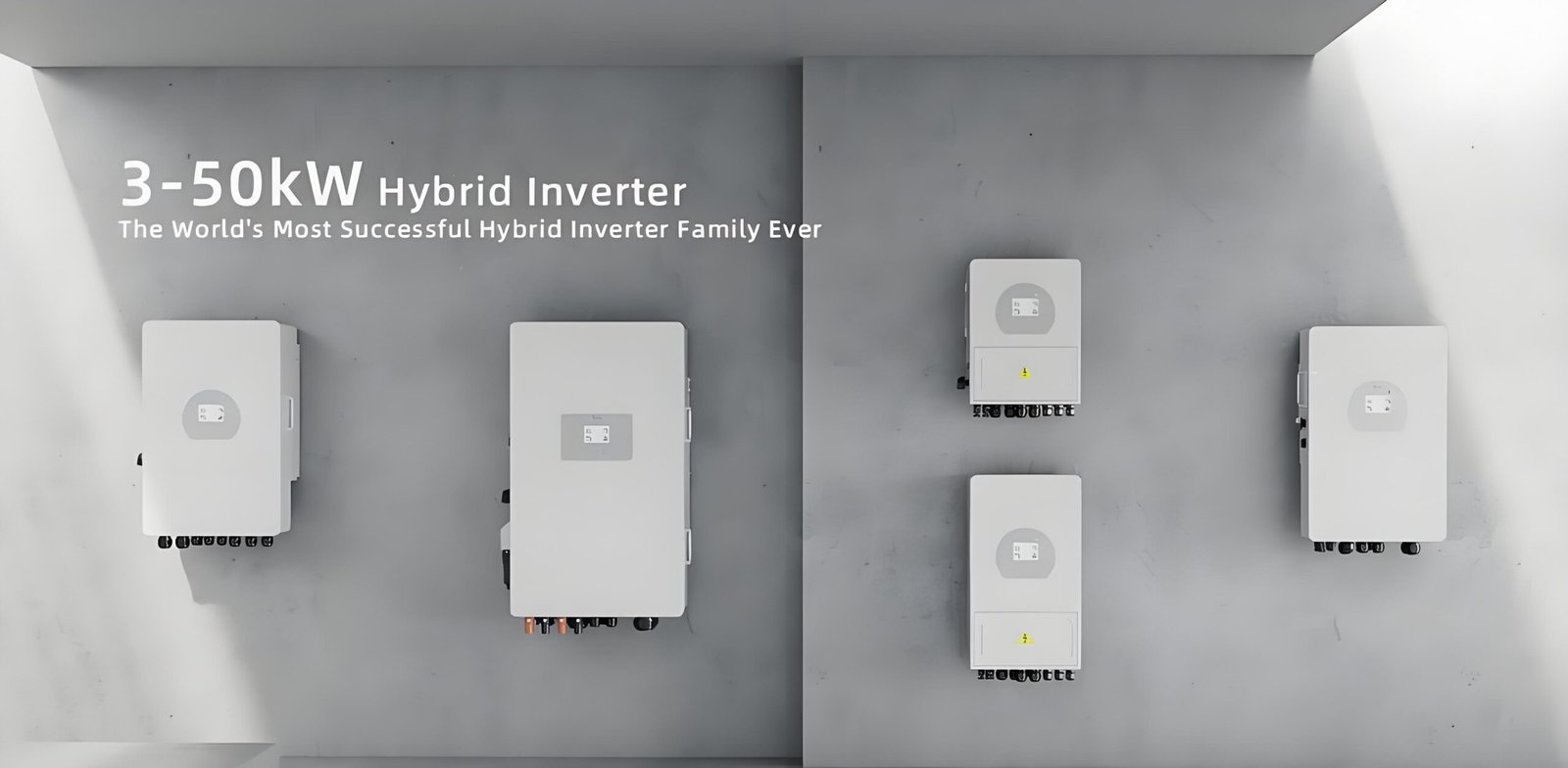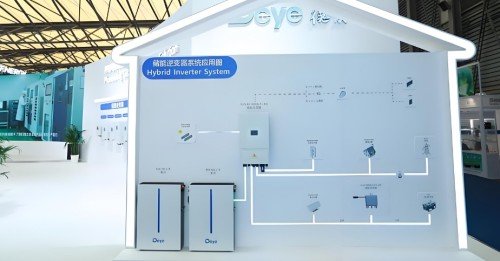
Inverters come in different sizes, ranging from small 1kW models to larger 3kW and 5kW options. Understanding the differences between these inverter sizes can help you select the right one for your needs. Let’s break down the key factors to consider when comparing 1kW, 3kW, and 5kW inverters.
In general, the main difference between 1kW, 3kW, and 5kW inverters lies in their power output, the size of the systems they support, and the number of devices they can power at once. A 1kW inverter is best for smaller homes or light loads, a 3kW inverter fits medium-sized households or businesses with moderate energy needs, and a 5kW inverter is intended for larger systems requiring more power, often used in big homes or commercial setups.
Power Output
The power output1 of an inverter is a critical factor in determining how much energy it can handle. Inverters are rated by their power output, typically measured in kilowatts (kW). Here's how the different inverter sizes compare:

- 1kW Inverter: Suitable for smaller applications such as powering basic home appliances (e.g., lights, fans, small electronics) or a very small solar system.
- 3kW Inverter: A middle ground, capable of handling more household appliances, including larger ones like refrigerators, air conditioners, and some basic electrical systems in a home.
- 5kW Inverter: Best for larger residential or small commercial systems, capable of powering multiple heavy-duty appliances simultaneously, such as multiple air conditioning units, large refrigerators, and other high-power devices.
Power Output Comparison:
| Inverter Size | Power Output | Typical Applications |
|---|---|---|
| 1kW | 1,000 watts | Small home setups, lights, fans, small electronics |
| 3kW | 3,000 watts | Medium-sized homes, several appliances (e.g., fridge, TV, lights, fans) |
| 5kW | 5,000 watts | Larger homes or small businesses, multiple heavy-duty appliances |
Solar Panel Capacity
The size of the inverter should be chosen based on the solar panel system's total power output. The inverter needs to handle the maximum possible power that the solar panels can produce.

- 1kW Inverter: Best suited for a small solar panel system (up to around 1.2kW total panel capacity). This can cover the energy needs of a small home or an off-grid cabin.
- 3kW Inverter: Ideal for solar panel systems generating up to 3.6kW. This size can be used for medium-sized homes with more substantial energy needs or for small businesses.
- 5kW Inverter: Suitable for larger solar panel systems (up to 6kW). This would be appropriate for larger homes or small commercial establishments.
Solar Panel to Inverter Size:
| Inverter Size | Solar Panel Capacity (Suggested) |
|---|---|
| 1kW | Up to 1.2kW |
| 3kW | Up to 3.6kW |
| 5kW | Up to 6kW |
Load Handling Capacity
The load handling capacity2 of an inverter determines how many appliances it can power simultaneously. As the inverter size increases, so does its ability to handle more significant electrical loads.

- 1kW Inverter: Typically handles smaller loads, such as basic lighting, small electronics, and a few other devices.
- 3kW Inverter: Can power a range of medium loads, including a refrigerator, TV, lights, fans, and a few small kitchen appliances at the same time.
- 5kW Inverter: Handles multiple high-power loads, making it suitable for larger homes or businesses. This can power several air conditioning units, water heaters, and large appliances.
Efficiency and Size of the System
As the inverter size increases, the efficiency of the system can also improve due to better handling of larger loads and the ability to distribute power across more appliances without overloading.

- 1kW Inverter: Typically less efficient for large loads and can experience significant power loss if pushed beyond its limit.
- 3kW Inverter: Offers more balanced efficiency for medium-sized loads, with a better conversion rate for mid-sized systems.
- 5kW Inverter: Generally more efficient at larger scales, as it can easily handle larger systems without significant loss in energy conversion.
Efficiency and System Size Comparison:
| Inverter Size | System Size | Efficiency |
|---|---|---|
| 1kW | Small (up to 1.2kW) | Lower for large loads |
| 3kW | Medium (up to 3.6kW) | Moderate for medium loads |
| 5kW | Large (up to 6kW) | Higher for large systems |
Cost
The cost of inverters varies depending on the power output, features, and brand. Larger inverters naturally cost more, but they also support larger solar systems and higher power loads.

- 1kW Inverter: The most affordable, typically priced between €150 to €500. Ideal for small homes or backup systems.
- 3kW Inverter: Moderately priced, generally costing between €400 to €1,200. Best for medium-sized homes or small businesses.
- 5kW Inverter: More expensive, with prices ranging from €800 to €2,500+. Suitable for large homes, commercial buildings, or more complex solar systems.
Cost Comparison:
| Inverter Size | Estimated Cost Range |
|---|---|
| 1kW | €150 - €500 |
| 3kW | €400 - €1,200 |
| 5kW | €800 - €2,500+ |
Summary
| Feature | 1kW Inverter | 3kW Inverter | 5kW Inverter |
|---|---|---|---|
| Power Output | 1,000 watts | 3,000 watts | 5,000 watts |
| Solar Panel Capacity | Up to 1.2kW | Up to 3.6kW | Up to 6kW |
| Load Handling | Small appliances, lights, fans | Medium appliances, fridges, TV, lights | Larger loads, multiple heavy-duty appliances |
| Efficiency | Lower for large loads | Moderate for medium loads | Higher for large systems |
| Cost | €150 - €500 | €400 - €1,200 | €800 - €2,500+ |
Key Differences:
- 1kW Inverter: Best for small, off-grid applications, low power usage.
- 3kW Inverter: Suitable for medium-sized homes or businesses, providing more versatility.
- 5kW Inverter: Ideal for larger homes, commercial applications, or high-demand systems.
Choosing the right inverter size depends on the power output you need, the size of your solar panel system, and the load you need to support. Ensure that the inverter is properly sized to handle your specific energy demands.



